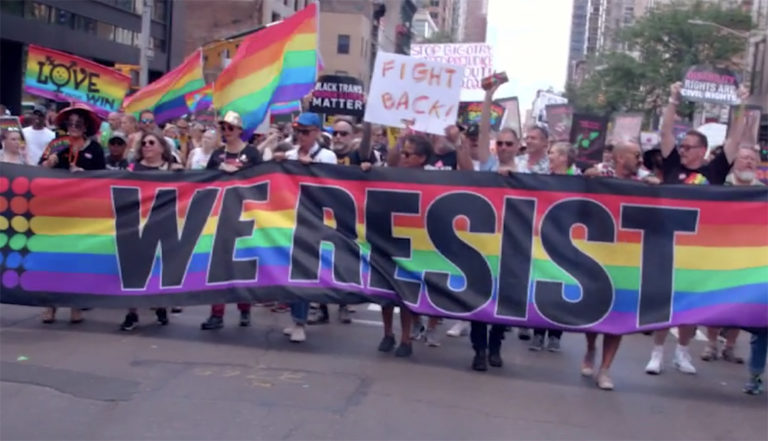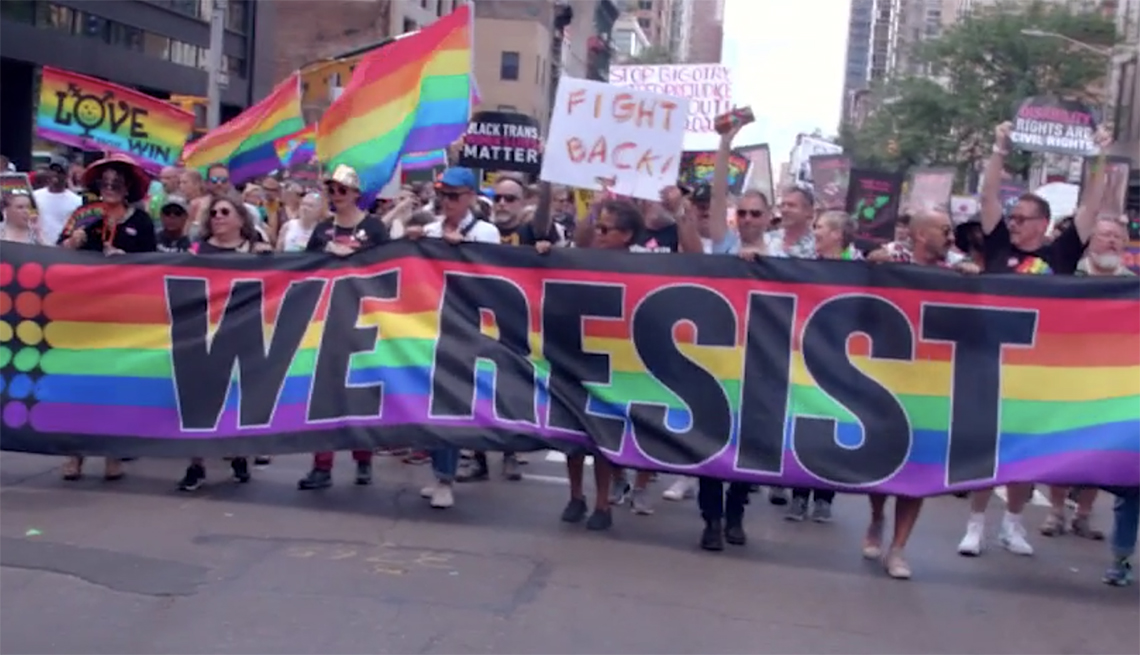

And yet the ‘50s were also a time when World War II veteran Christine Jorgensen became famous for changing her sex and wound up not in prison but in the movies, an influential celebrity who pioneered acceptance of trans people. In a deep irony, the world of public persecution fueled a private world — a nod to the episode’s title.
“It made the party better,” Smith says, “because if you are repressing parts of who you are in order to fit in, in order to not get arrested, fined and jailed, when you find a space where you can actually be yourself surrounded by other people free to be themselves, it’s an explosion of freedom, explosion of creativity. Nobody wants to be held back — but when you let yourself go, it’s going to be a bigger burst of energy and joy.” Smith loves to quote famed director John Waters: “The best parties were the ones that were about to be busted.” Part of the gift of this footage, Smith says, is to witness people “basking in the freedom of not constantly being watched and reported on. And it’s a very special energy that doesn’t exist anymore.”
The culture-shifting tragedy of AIDS
Smith’s episode, which covers the historic ACT UP (AIDS Coalition to Unleash Power) movement that erupted to battle the epidemic, reveals unexpected insights, he says. “An important thing that has never been discussed enough is the role of lesbians in ACT UP,” Smith says, “Ann Northrop and many others. That community really came together as part of the same chosen family — they fought for each other.”
Further, Smith says, the impact of news coverage of the AIDS crisis opened many Americans’ eyes to gay life. “It’s awful that it took a tragedy like AIDS to make people talk about homosexuality,” he says, “but before, it was something you just didn’t talk about. Like, my grandmother had a crush on Liberace and it didn’t occur to her why he was still single. There was a lack of knowledge.” Suddenly, Smith says, “homosexuality was brought into everyone’s home because of the TV and the news. And it sparked a lot of conversation.” The tragedy forged community and intensified a sense of identity. “This terrible thing also resulted in advancements and people growing stronger out of it. It’s very queer to say, ‘I will not let this thing just kill me — I will not hide anymore.'”
Pride’s biggest gift
For Smith, what may be the series’ greatest impact is its variety of timelines, events and points of view. “By having all these different stories from each decade, we’re able to show that being queer is not monolithic,” he says. Idiosyncratic and eclectic, Pride illuminates a rich, complex community, and illuminates its vital chapters of American history long overlooked.
Pride is available for streaming on Hulu. Get more information and watch here.